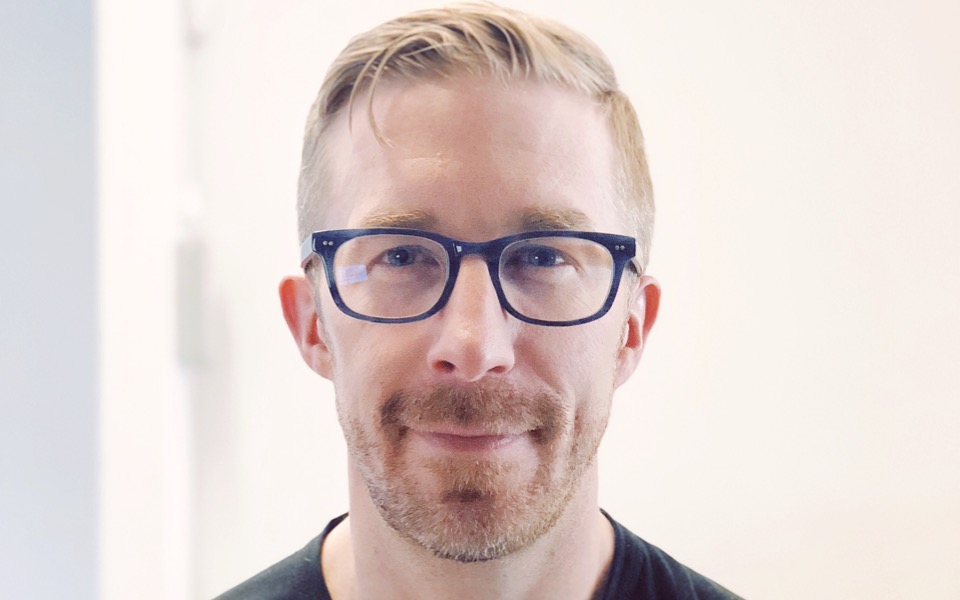‘Modern cultures must promote courage, curiosity and compassion,’ says hashtag pioneer

“There’s been a considerable amount of graft and corruption in Greece, which is incredibly challenging to root out once it infects the culture. The best shot you have is to gradually replace that culture with a new culture that values different things that are aligned with the long-term welfare of groups of participants and creators, and that rewards those who value contribution over self-aggrandizement.”
Speaking to Kathimerini, Chris Messina, the open web and software evangelist who created the hashtag, does not hide his concerns about the risk of a future in which the synthetic blurs with the real in a way that is undistinguishable, or worse, that people stop caring about the delineation whatsoever.
Almost 11 years ago, in August 2007, you tweeted the first hashtag. Today # is a world trend, reaching far beyond social media. What is the story of # and what is the message of its success?
The birth of the hashtag came a few months after the iPhone first came out. Its origins go deeper into internet culture, though. Twitter launched in 2006 and was first to catch on to the mobile trend – making it possible to post status updates via SMS. Many of us early Twitter users were enamored with the system, but wanted a way to make the tweets we received more relevant to our interests. It seemed that if people labeled their tweets, we could route them more effectively. Of course, we were familiar with internet forums and chat (IRC), but we needed something that would work well on the existing mobile devices that had plastic keyboards. IRC had long used the pound (#) symbol to identify topic-based chat rooms and the pound key was seldom used on mobile keyboards.
I wrote up a blog post and tweeted out my suggestion that we could simply add the # symbol to the front of words to tag or label the content of the message. The response was mixed. Twitter didn’t like the idea much at all, but its users were more open to it. Consequently, I worked with independent developers who built apps for Twitter and gradually convinced them to add support for the hashtag – and as Twitter acquired those products, it had little choice but to adopt the functionality of the hashtag in their service.
Of course, the hashtag was intended to be an open technology that anyone could use, and over time other services like Instagram, Tumblr, Facebook, Google+, Pinterest and others all added support for the simple convention.
The message of the hashtag, then, which stands in contrast to the message of Silicon Valley broadly, is that success need not be dictated only by paper money valuations and short-term gains achieved through the exclusive use of technological innovations. Instead, the hashtag, as an open technology intended to encourage media innovation and participation, can be just as important and powerful to shaping and enabling the production of culture as any proprietary device or design.
Is technology changing the way we work and the way we think of life?
Marshall McLuhan was a prominent media theorist in the era of the radio and television and made profound observation that apply to this day. Some of his keenest insights apply to the interrelationship between the mediums which man produces, and how they, in turn, reshape man’s consciousness.
At a fundamental level, the hashtag merely represents man’s desire to commune in a common, open space, no different than a town hall or public commons. But a major difference inherent in the medium of the internet is that anyone can raise their voice, without receiving prior permission, to participate. The internet allows us to scale up synchronous participation in a way that we could never achieve in person, and as a result, many of us now take this experience for granted. The hashtag, though, is merely one aspect of a behavioral shift towards virtual conversations, and where the rules of participation are still being debated and written.
In addition, given the scores of people now actively participating in the online conversation, we’ve learned to tailor our communications to be shorter and punchier, in order to achieve the maximal impact with the least number of syllables. It’s impossible to deny that the form of internet discourse – largely determined by Twitter character limits and Instagram’s square photo ratio and Snapchat’s full-screen story format – hasn’t changed the shape and duration of our thoughts and how we compose them in our private headspace.
Are you concerned about the fact that we can share every aspect of our lives in real time? There’s the problem of security in the first place, especially for younger users (they keep getting younger) and of course there’s the question of what is more appealing – a good story or a group of nice photos sent to social media?
What concerns me more than sharing our lives with anyone, anywhere, in real time, with increasing amounts of depth and fidelity is what meaning we derive from that communication, rather than the ability to do it. And I’m more hopeful because younger people are adopting and mastering new mediums quickly, but also cautious because limited attention spans mean that we have to make mundane and ordinary information like “facts” and “history” more compelling than the more salacious fake news or virtual realities. What I worry about is a future in which the synthetic blurs with the real in a way that is undistinguishable, or worse, that people stop caring about the delineation whatsoever.
Can technology help societies become more democratic and help people have better information on government decisions? How do you feel about fake news?
In a world where we can no longer discern what is real from what is fake or are not vigilant about which is which, it will be that much harder to muster compassion or care for the characters presented through digital mediums. Especially in an age when advertisers and marketers are increasingly sophisticated about how to elicit an emotional response from us using urgency, hyperbole and outrage, we in fact need more future literacy to insulate ourselves from the more insidious and isolating effects of social technology.
We must learn how to live in hybrid augmented realities and to evaluate the media and messages that we receive for their veracity and for the underlying motivations that caused the sharer to publish in the first place. If we do not become more adept at this, we can expect that more undesirable outcomes like what happened in the 2016 US election will occur more often.
We must recognize how fragile democracies become when the cost of producing hard-to-detect false or misleading information declines precipitously. To combat this threat, some initiatives from Facebook and Twitter are focusing on buttressing democracy with greater transparency, accountability, and in-context information about the reputability of certain content. In other cases, people are attempting to apply emergent technologies like the blockchain to increase trust, durability, and accountability of information over time. We are starting to see improvements to the systems that were exploited in recent years to prevent abuses but there’s still a long way to go – not just with the technology itself, but with the awareness and sophistication of users.
Greece has experienced a considerable brain drain over the past decade. A popular solution put forward is that for Greece to have a future, it has to invest heavily in new technology and startups. If you were asked to suggest two things to help Greece overcome its problems, what would they be?
I don’t believe that investing heavily in technology and startups alone will help Greece without first altering its underlying culture and economics. Modern cultures must promote courage, curiosity and compassion. Modern economics must promote participation, access, generativity, innovation, flexibility, and support risk taking, experimentation and self-learning. The success of some of my other noteworthy contributions like co-working or a series of popular participatory “unconferences” was largely predicated on applying the open source model in a novel way. I was willing to take risks because the culture encouraged it as necessary to learning and growth. I was willing to give away some of my ideas because I knew that their widespread adoption would lead to more generative results than if I kept them all to myself.
Thus, if I were to offer two ideas to help Greece overcome its recent troubles, I’d start by engineering a culture and economics that looks to the future. Unfortunately, there’s been – as I understand it – a considerable amount of graft and corruption in Greece, which is incredibly challenging to root out once it infects the culture. And so the best shot you have is to gradually replace that culture with a new culture that values different things that are aligned with the long-term welfare of groups of participants and creators, and that rewards those who value contribution over self-aggrandizement.





